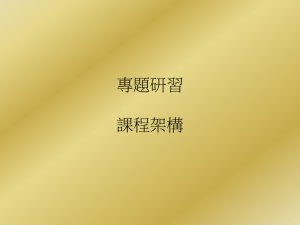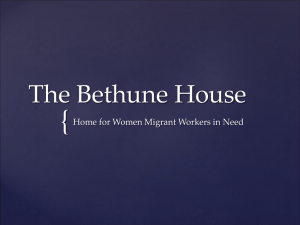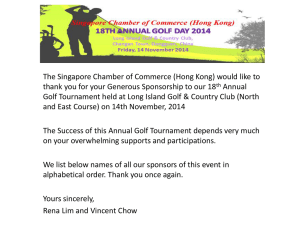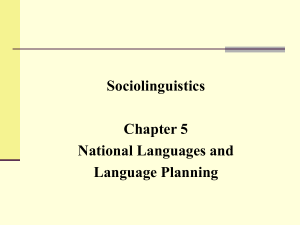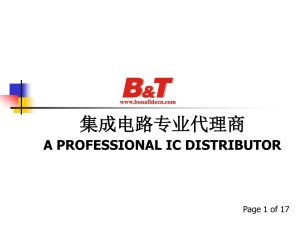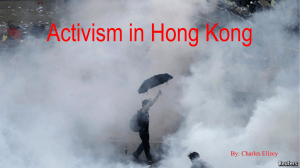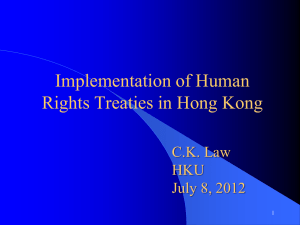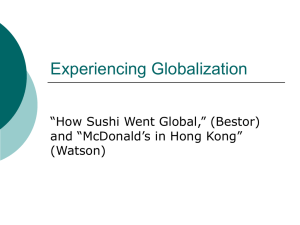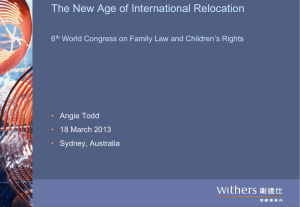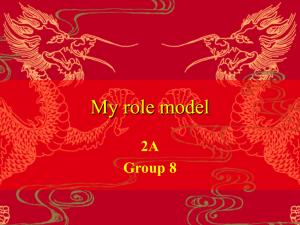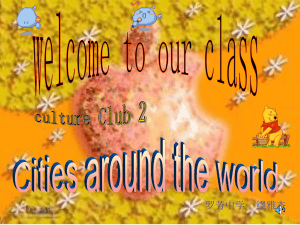Hong Kong English (and other Englishes)
advertisement
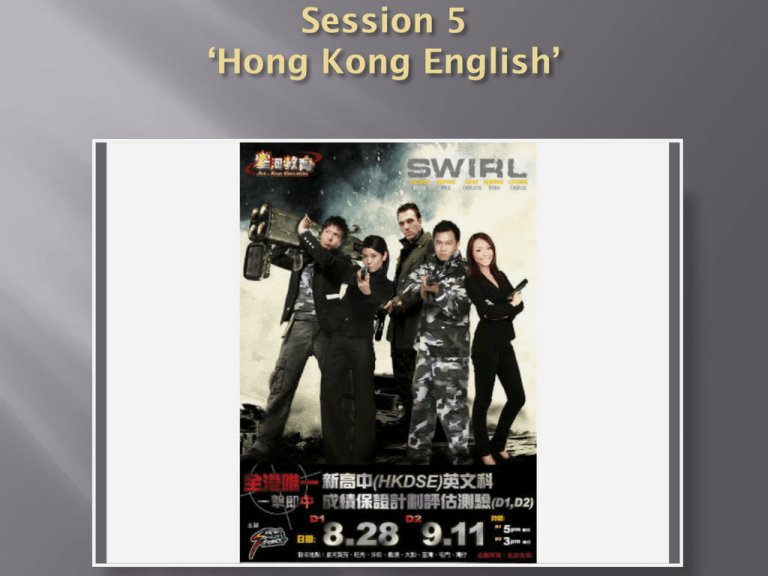
Who wants ‘native speaker English’ ? Who wants ‘Hong Kong English’ ? Do we have a choice at all? A public discourse about English in Hong Kong, founded on the metaphor of a decline (‘the falling standards complaint’) An academic discourse, which rejects the public discourse and denies the validity of the ‘decline metaphor’ 1970s: 2% went to university (the rich families sent their children to HKU; the middle-class families to CUHK) 18% went on to work as clerks and secretaries in government and business offices (extensively deal with the public): The people serving you at the window may well have been from the top 5% of their graduating class, highly educated, with excellent English mid-1990s: 20% go to university: they aspire towards executive management jobs; the clerks and secretaries serving you at the window downtown are no longer university graduates; they may not even have come from the top quarter of their graduating class …Hong Kong people are not simply making random errors in English. Rather, people are making the same ‘errors’ (from the point of view of Standard English) in regularly recurring patterns, many of them traceable to the influence of Cantonese. Given this regularity of structure, it makes sense from a linguist’s point of view to speak of Hong Kong English as an emerging ‘language’. …the ‘emergence of Hong Kong English’ and the ‘decline of English standards in Hong Kong’ are one and the same thing, looked at from two different points of view. In some ways two opposite points of view, because ‘emergence’ implies that English is in the process of becoming a language of Hong Kong [...], whereas ‘decline’ implies that Hong Kong is losing English. “In the context of English in Hong Kong, if history teaches us anything it is that the ‘decline’ in externally-imposed standards must occur if English is to survive in post-colonial Hong Kong (see Harris, 1989). New ‘internal’ standards must replace them – and that is precisely what has been happening with the emergence of a distinctive form of English”. (Joseph) “My predecessor as head of department gave an inaugural lecture entitled ‘A language not our own’. Those words could fittingly stand as an epigraph to mine. The language or languages a community uses must be its own; and communities, like individuals, have the ability to make a language their own. For communities, like individuals, are not just language users: they are language makers. New English or Old English, if Hong Kong wants English, then Hong Kong must make English its own. Otherwise it will surely lose it”. (Harris) English in Hong Kong is presently on its way to becoming ‘nativized’ A variety of competing linguistic norms co-exist in Hong Kong: people’s linguistic attitudes do not match up with linguistic behaviour ‘Linguistic schizophrenia’ (Kachru 1983): people holding to external ideals of native speaker English, but holding to local norms in practice When asked to reflect on it, speakers orient themselves towards the norms of Standard British English, but unconsciously they follow the norms of a local variety. Gramsci’s spontaneous grammar vs. normative grammar ? Are the signs I use my own ? Am I responsible for them? IS IT THE CODE THAT MAKES ME SAY IT THIS WAY - OR IS IT I WHO CHOOSES TO DO SO…? Does language pre-exist language-use? Where does the individual stand vis-à-vis the collectivity ? When Harris says that ‘the Hong Kong community must make English its own’, does he mean that Hong Kong must speak ‘Hong Kong English’ ?

